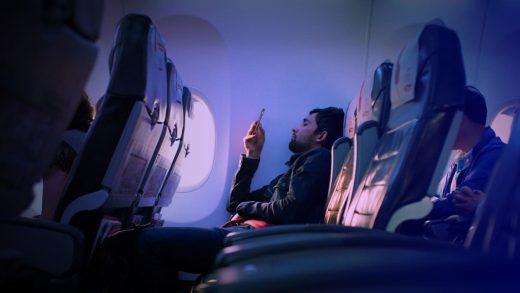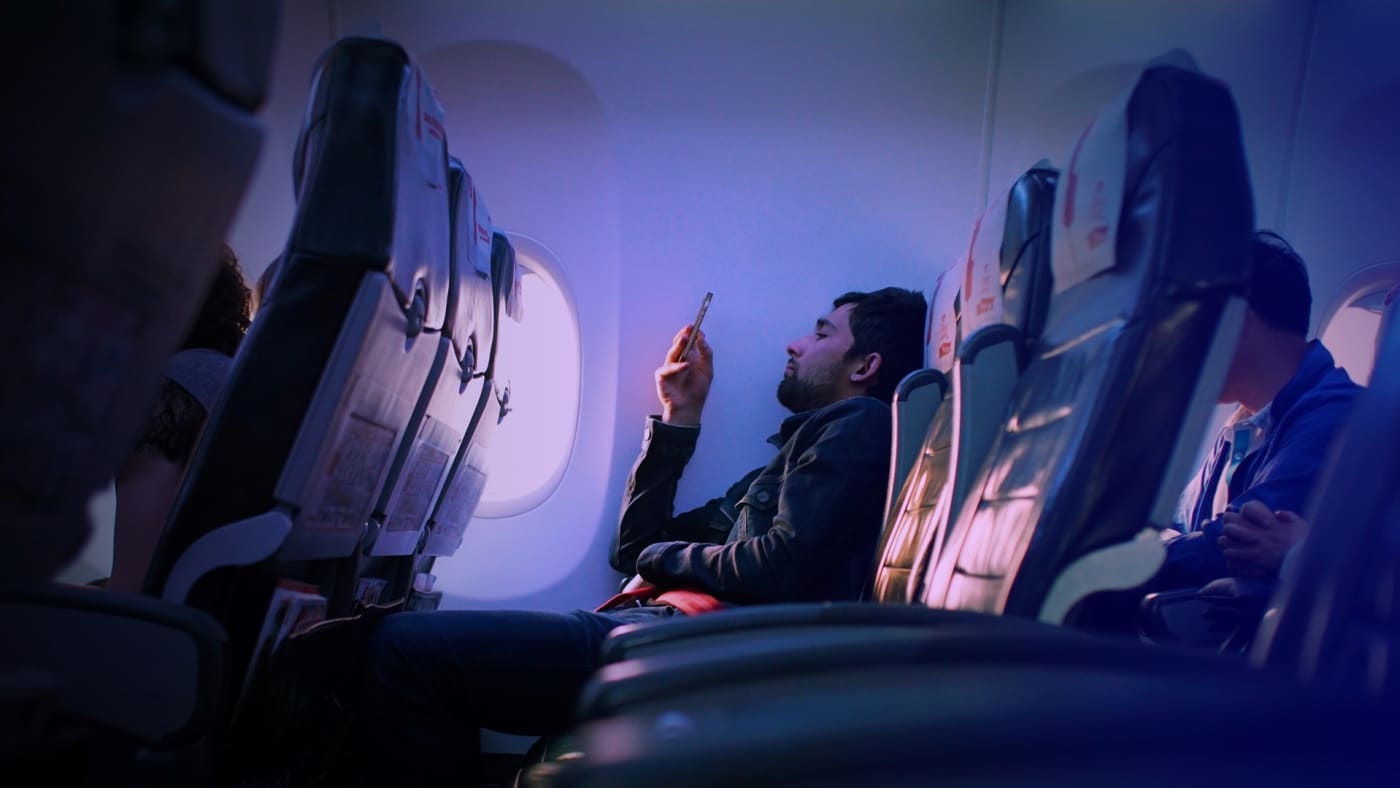This Is How To Make Air Travel Easier On Your Brain And Body
Flying can take a toll on even the most experienced traveler. If you’re not careful, it’ll zap your energy, disrupt your sleep patterns, and make your digestive system sluggish. Fortunately, with a few simple travel hacks you can make air travel less stressful on your system, curb the effects of jet lag, and keep your energy levels up.
The Night Before
Research airport facilities. An itinerary with even one connecting flight can dramatically stretch out your door-to-door travel time, so the key is to maximize downtime. If you know you’ll have a layover, go online and check out the airport’s amenities, including any perks you may get as a select passenger (through your travel miles or the like). Look for private lounges, shower facilities, and Wi-Fi. If you have three hours or more between flights, find a lounge with comfortable recliners to take a nap. A three-minute cold shower followed by a two-minute hot shower can help “reset” your nervous system and do wonders for how your body weathers a drawn-out travel experience.
Plan to go offline. Prepare to use some of your travel time for device-free productivity. Download a few podcasts ahead of time and pack a paper journal to brainstorm creative work. Long-haul flights are perfect for this type of thinking.
Take slow-release melatonin to zonk out. A three-milligram dose is usually all you need to bank a great night’s sleep the night before you fly. Just make sure you use slow-release capsules, otherwise it won’t help you stay asleep. Melatonin also has immune “buffering” or boosting properties that can mitigate colds and flus in transit. You can pop another three-milligram dose again 30 minutes before you plan to sleep, too, just as long as you’ll be on the plane for six hours or more.
The Day You Fly
Swap airplane food for “superfoods.” Pack protein-rich snacks that keep you full for longer and help you avoid eating plane food. In-flight snacks and meals are usually high in calories, bad carbs, and salt, and lack real nutrients. Better options include raw tree-nuts and seeds and dried prunes for digestion. You can even make your own five-second smoothie mix by brining the dry ingredients to the airport with you, like a simple whey protein and spirulina or greens powder mix. Then just buy a liquid like coconut water, soy milk, or water once you’re through security to mix into a shake.
Ditch the coffee for green tea. Caffeinated beverages like coffee can leave you dehydrated, keep you awake during the flight, and lower your immune system. Green tea is lower in caffeine and high in EGCG, a powerful antioxidant that can give your immune system a boost amid all that stale, recycled plane air and any germs and viruses bouncing around the cabin. Green tea also contains L-theanine, a naturally occurring, calming amino acid that can help you relax and rest in-flight.
Break out your napping gear. Use a high-quality sleep mask that fits over the nose and blocks out light. It shouldn’t feel tight against or press up against your eyelids. I like to put a few drops of lavender essential oil onto my mask to enhance the relaxation effect. You can now get high-tech ear plugs, too; my personal favorites are Flare Audio Snoozers, which drown out most sound frequencies, including plane noises and human speech, to optimize nap time.
Take a calming herbal supplement. You can mellow your mood without popping sleeping pills. Try a supplement with a combination of valerian, passionflower, hops, lemon balm, or Chinese skullcap. Vitamin B6 and milk protein hydrolysate, a calming milk-derived protein, are good options, too. These are safer alternatives to sleep and anxiety pills that can be habit-forming and leave you with a nasty hangover later.
As Soon As You Land
Get your heart rate up. Once you reach your destination, do some quick exercise to get your biological clock back into sync and enhance lymphatic drainage. That’ll reduce any physical and mental sluggishness. If you like yoga (some airports now include yoga rooms, by the way), spend 10 minutes doing six rounds of sun salutations. My own favorite activity is a mini “HIIT” (high-intensity interval training) session right in my hotel room, doing body-weight exercises like pushups, jumping jacks, and jump squats, for 20-second intervals.
Wind down your nervous system. Finally, recenter your mind. I like guided meditation apps like Headspace, which makes for less mental work if you don’t have a regular meditation practice already. This should set you up for a good night’s sleep and get your brain back into a calm, relaxed “alpha” rhythm. To take this to the next level, you can try a biofeedback app and device, such as HeartMath, which can help you synchronize your heart rate with your breathing in order to better buffer stress.
Long flights can really throw you off, but with these hacks and a little forethought, they don’t need to condemn you to a head cold and lethargy every single time.
Dr. Dani Gordon (@AskDrDani) is a Canadian double board-certified medical doctor and mental performance trainer. She is also the cofounder of Zenbrainlab and Brain Coaches.
(17)



